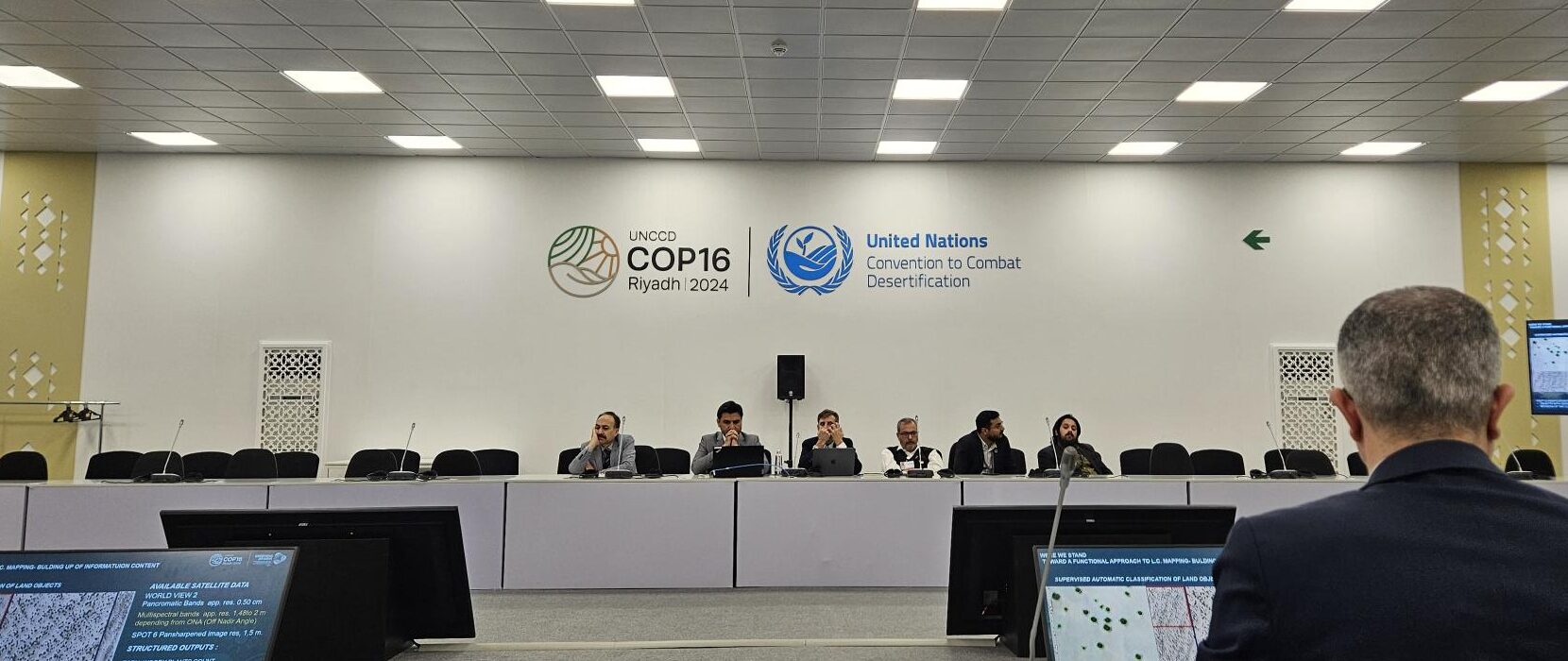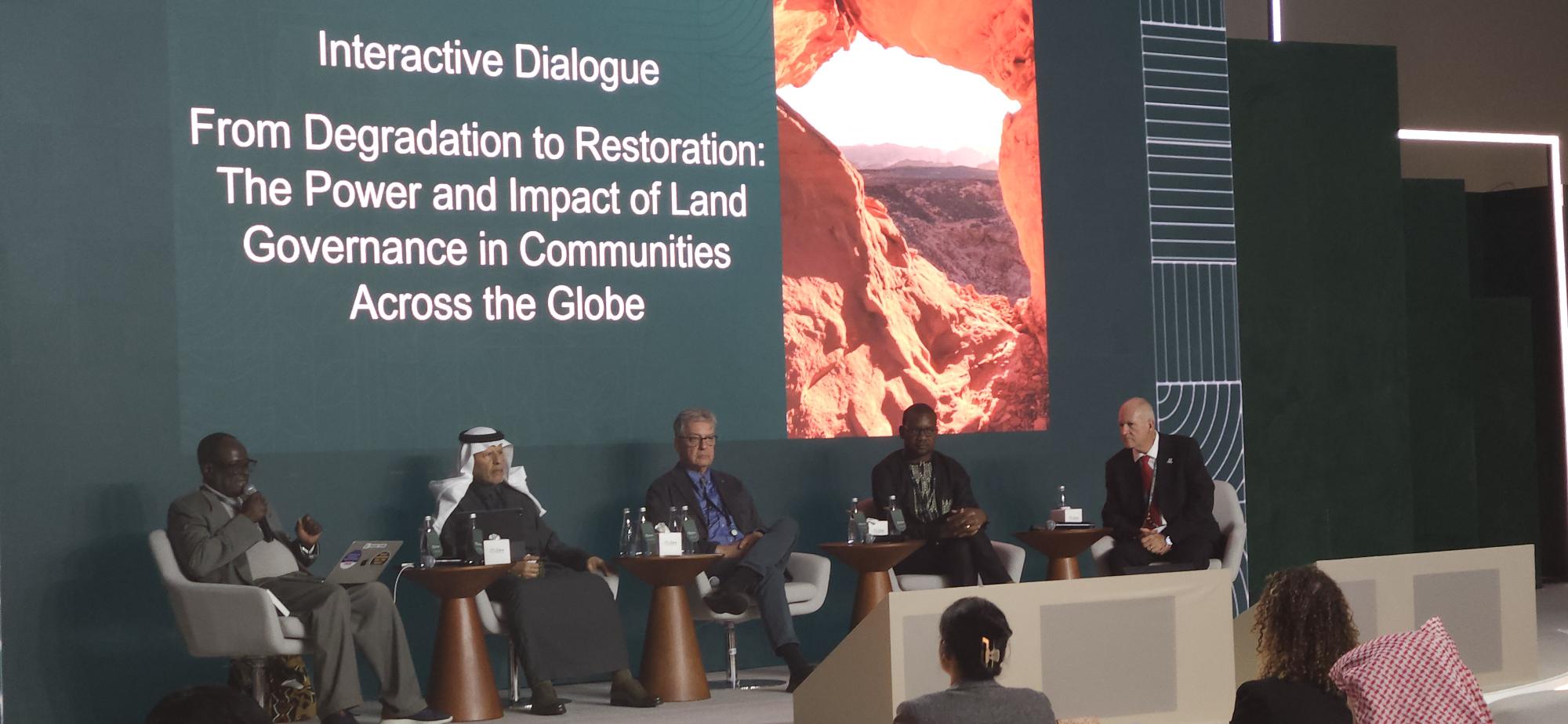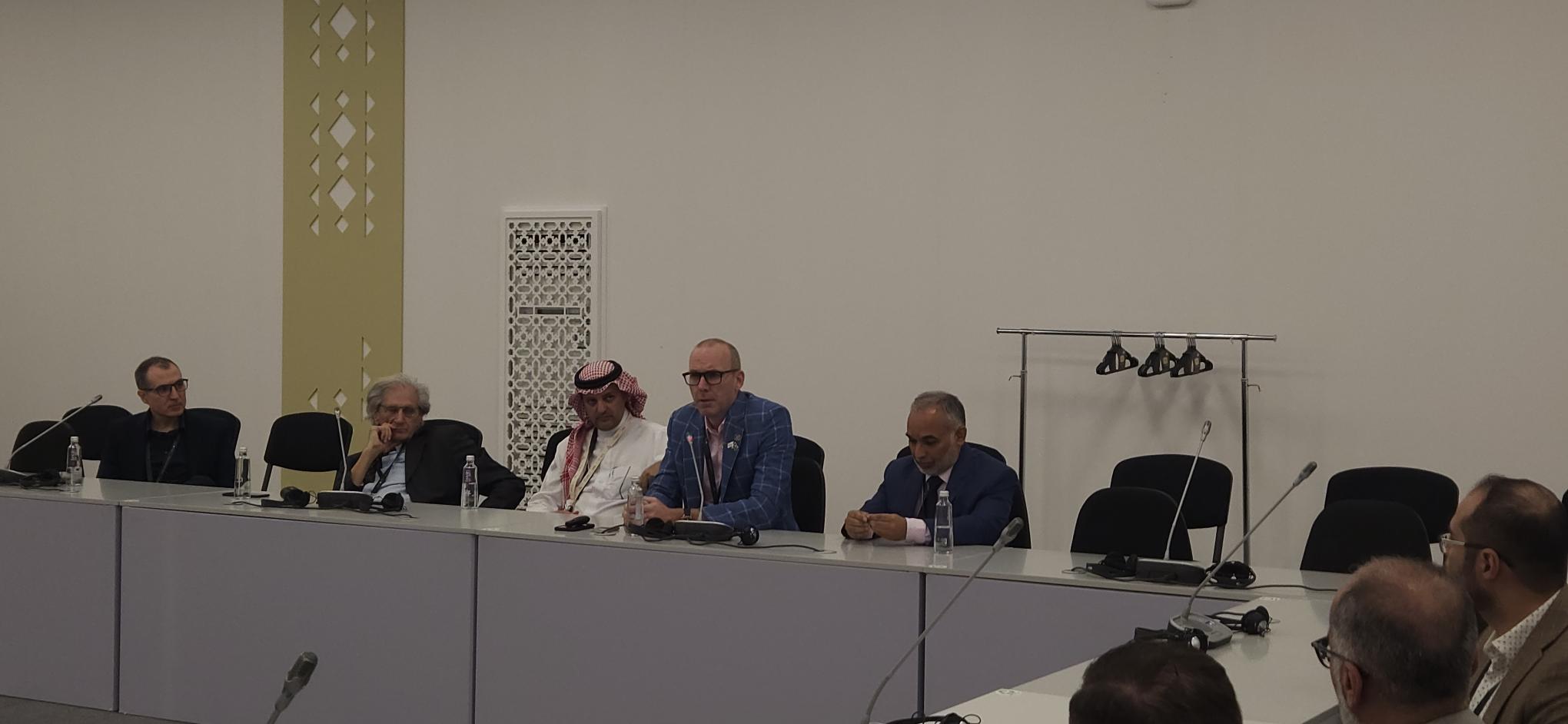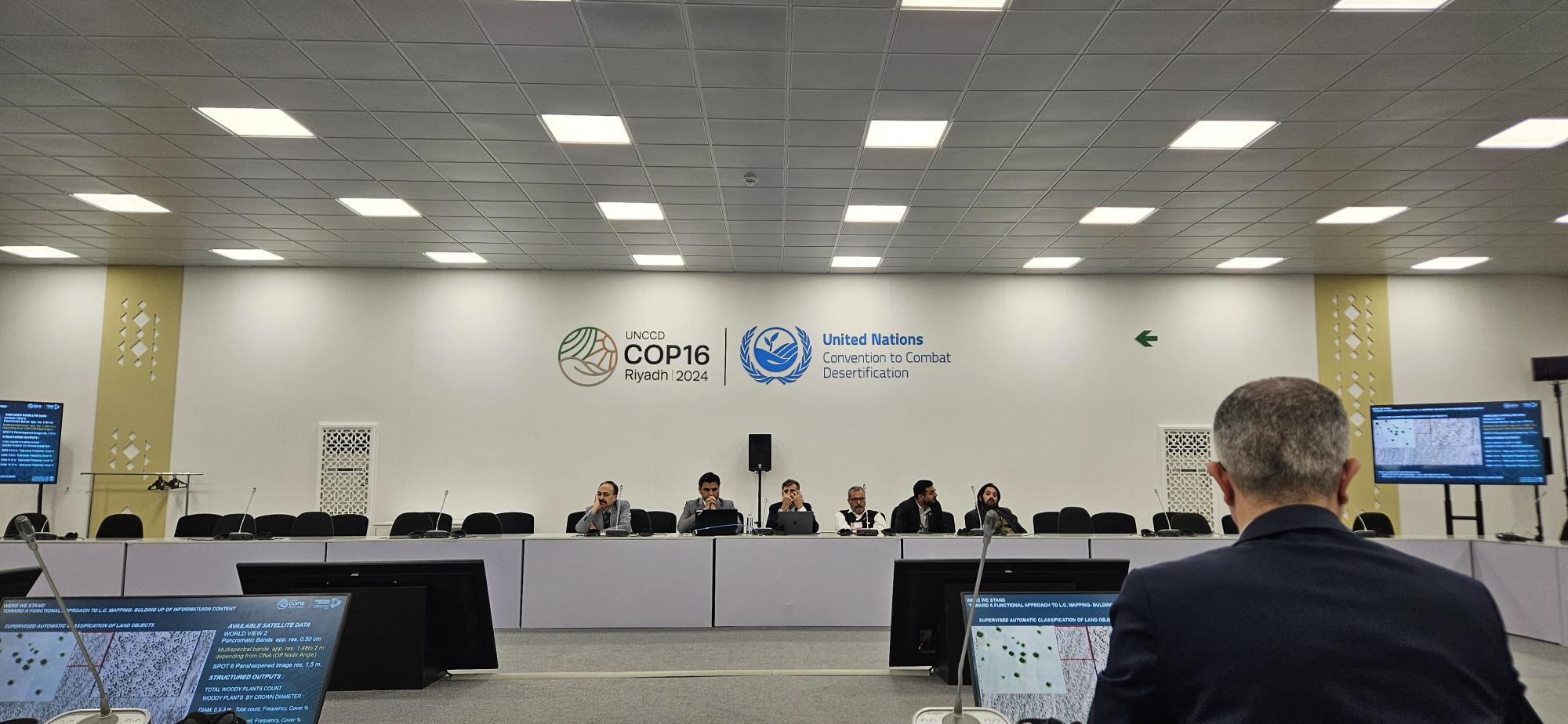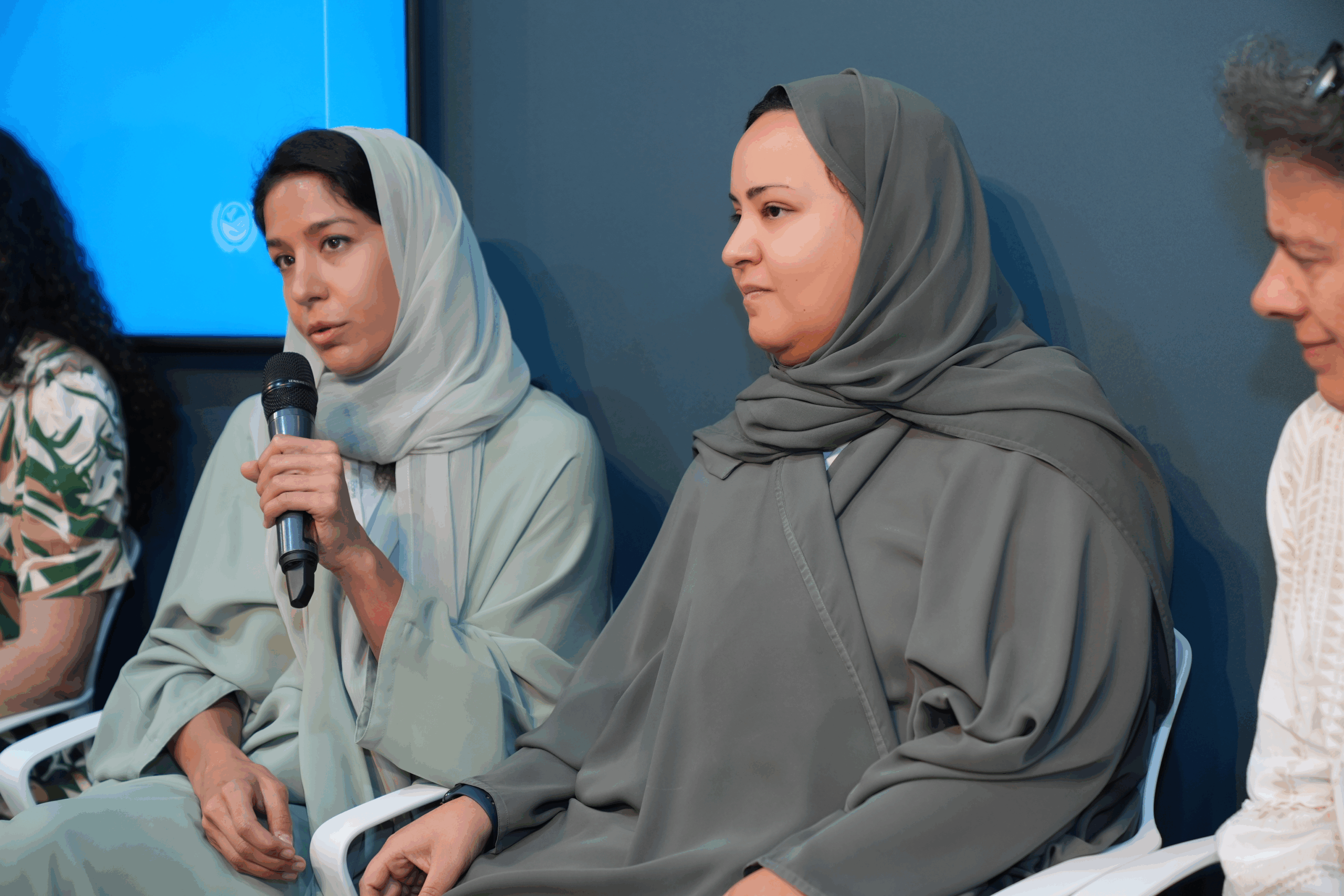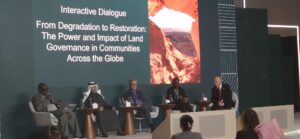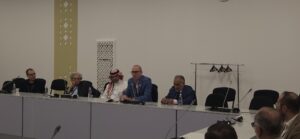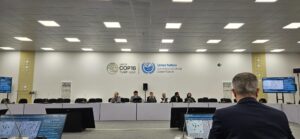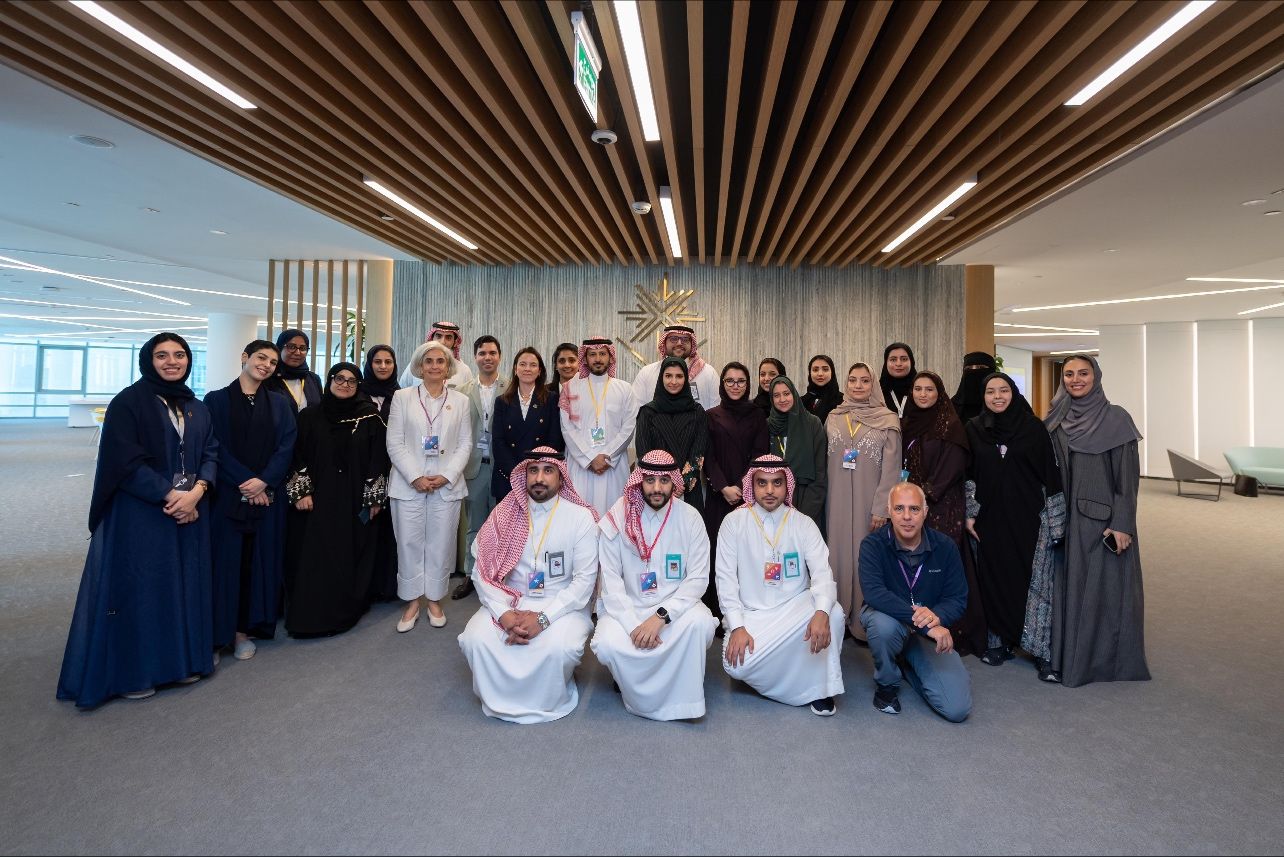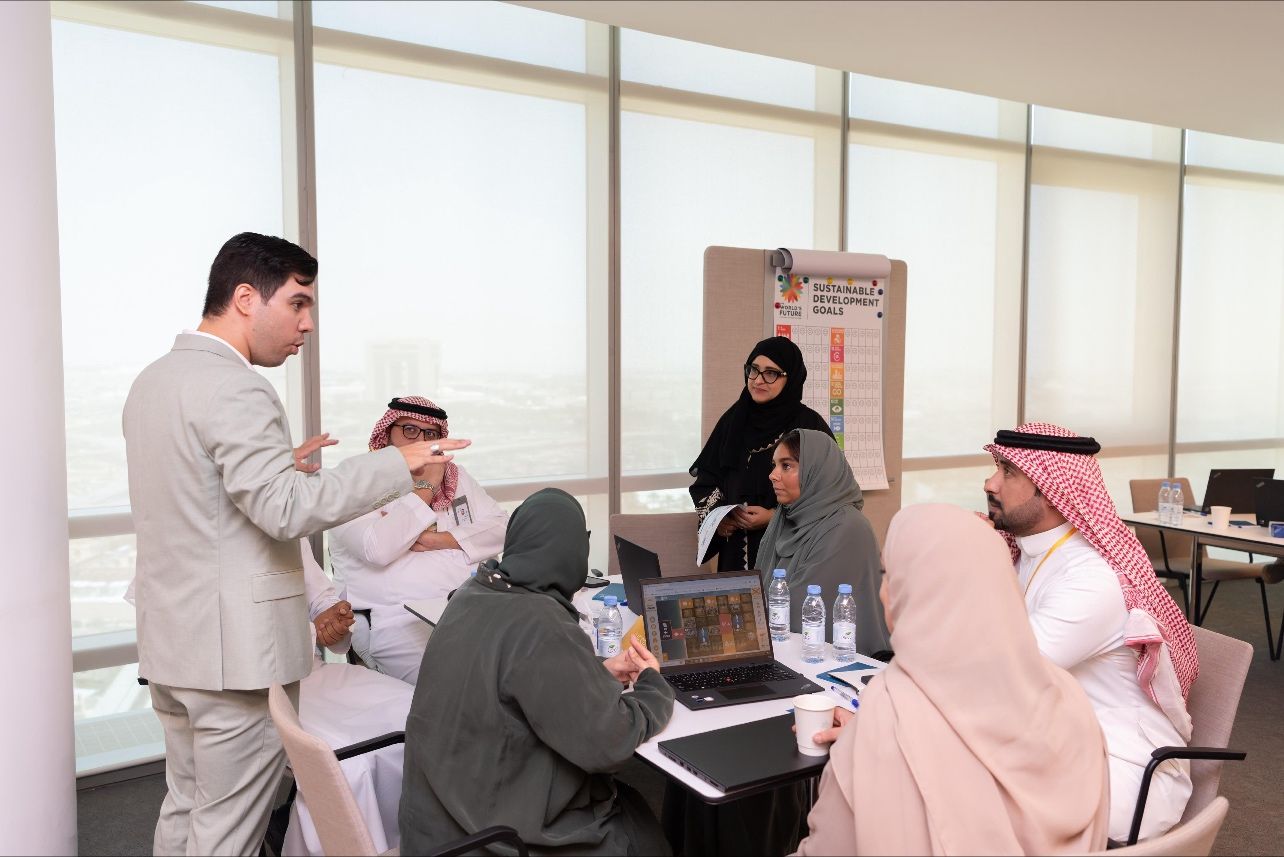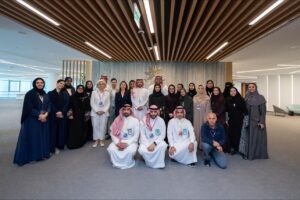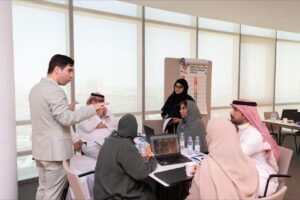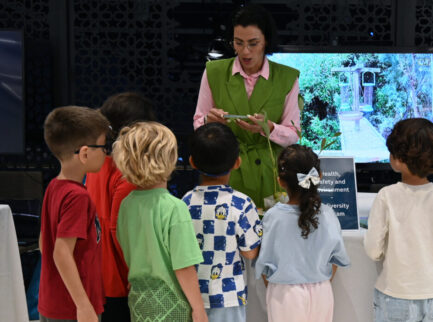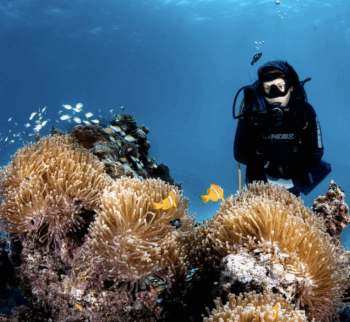As nations accelerate efforts to meet the UN Sustainable Development Goals, translating science into actionable policy has become central to addressing interconnected crises in climate, water, land, and biodiversity. Within this global movement toward evidence-based governance and cross-sector collaboration, KAUST has deepened its partnerships with ministries, NGOs, and international organizations over 2024, with the goal of informing SDG-related policy design, strengthening national strategies, and enabling dialogue that turns knowledge into collective action.
Engaging on Global Stages
At the 16th Conference of the Parties (COP16) to the United Nations Convention to Combat Desertification (UNCCD) in Riyadh, KAUST participated across blue- and green-zone stages and convened with ministries, UN bodies, NGOs, IGOs, and youth — contributing to sessions on water security, climate resilience, land restoration, sustainable cities, food systems, and biodiversity. The program mixed science talks with policy-facing dialogues, with sessions on dust impacts over the Middle East and urban greening in Saudi cities, technical exchanges on wastewater reuse for greening (with the Saudi Irrigation Organization), and practice-oriented updates on low-cost solutions for growing desert vegetation and climate-smart farming technologies. KAUST’s innovations also reached global audiences through international media coverage, with features highlighting how its technologies are advancing sustainable agriculture, food security, and land restoration in arid environments.
KAUST researchers also discussed data-driven monitoring for decision-making, including human-centered land dashboards, and contributed to thematic dialogues in the Science-Policy Interface Pavilion that connected science outputs to policy pathways. Collaboration with government entities were featured throughout the event (e.g., National Center for Meteorology side events, high-level host-country official sessions), while cooperation with IGOs and NGOs included participations in UNESCO’s Global Network on Water and Development Information for Arid Lands (G-WADI), and in panels co-organized with the Consultative Group on International Agricultural Research (CGIAR), the International Food Policy Research Institute (IFPRI), the World Bank, and youth engagements at the UNCCD Youth Forum.
Building on their long-standing collaboration, KAUST and AEON Collective co-organized a science engagement pavilion in the COP16 green zone and took part in blue zone discussions. AEON Collective — a Saudi NGO promoting sustainable development through nature-positive approaches, policy engagement, and community outreach — partnered with KAUST to present their joint policy brief, Bending the Curve: A Call to Action on Land Restoration and Sustainability, which emerged as a key highlight among the sessions. KAUST’s relationship with AEON has been continuously enhanced over the years through multiple MoUs enabling joint research translation projects and civil-society engagements for policy advisory. The policy brief, expected to also be submitted to research journals, proposes a strategy to halve degraded land by 2050, linking food systems, biodiversity and drought resilience, while providing evidence on drivers, costs and intervention levers to inform national and regional policy discussions and scenario planning on possible interventions.
All of these engagements clearly demonstrate how universities such as KAUST can play a pivotal role in advancing the Sustainable Development Goals agenda, by translating scientific research into evidence-based policy and fostering dialogue that connects science, government, and civil society. Through contributions to discussions influencing SDGs such as SDG 15 – Life on Land -, SDG 13 – Climate Action -, SDG 6 – Clean Water and Sanitation -, SDG 12 – Responsible Consumption and Production -, or SDG 2 – Zero Hunger -, KAUST showcased how academic expertise can inform land restoration, climate adaptation, sustainable water management, and resilient food systems.
Supporting the National SDG Agenda
The dialogues and partnerships shaped through KAUST’s global impact also feed directly into national planning and policy. Extending on the above science–policy collaborations with international and Saudi institutions, KAUST ensures that global insights translate into practical pathways for advancing the Kingdom’s sustainable development priorities. A strong example is KAUST’s continuous engagement with the Ministry of Economy and Planning (MEP) — the government entity overseeing and accelerating the SDG agenda and progress in the Kingdom. The formalized collaboration came to life through strategic meetings, advisory engagements and capacity building activities. Earlier in the year, KAUST delivered a social simulation workshop for MEP employees to engage with global sustainability problems and the difficulties of decision making using a simulated environment. KAUST has also directly contributed with technical expertise and research-based knowledge, by having multiple KAUST experts provide technical reviews for MEP SDG policy papers, aimed to map development pathways for the Kingdom to advance its contributions to SDG 2 – Zero Hunger -, SDG 9 – Industry, Innovation and Infrastructure -, SDG 13 – Climate Action -, and SDG 14 – Life Below Water. This combination of capacity building, engagement, and advisory support national policy dialogues while sustaining cross-sector collaboration.
Through its engagements at both international and national levels, KAUST demonstrated how universities can act as catalysts for translating knowledge into governance. By transforming research into data-driven tools, science-informed policies, and capacity-building programs, KAUST illustrates how academic institutions can move beyond observation to active participation in shaping sustainable development trajectories. This model of science-informed policymaking — tested through global dialogues and applied through national collaborations — shows how universities can bridge research and regulation, enabling societies to plan, act, and adapt in alignment with the Sustainable Development Goals and long-term national visions.

